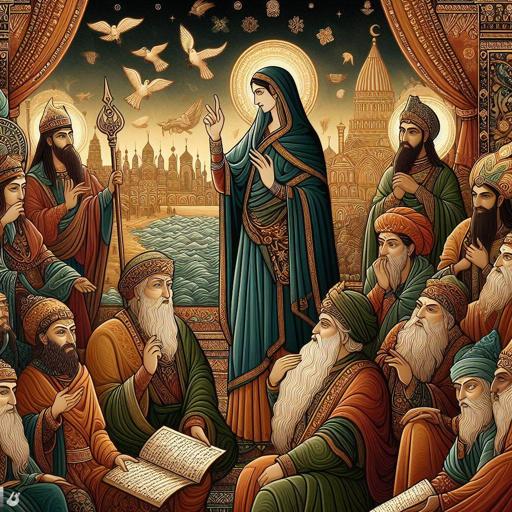The wise leader had a vision for his nation. He wanted to modernize the economy, improve the education, and promote the human rights. He knew that his country was rich with resources and potential, but it was held back by some cultural barriers.
But his reforms clashed with the clergy's opinions. The clergy opposed his changes, claiming they were against the traditions and the faith. They used their influence to sway the public opinion against the leader. They accused him of being a traitor, a heretic, and a puppet of foreign powers.
The people trusted the clergy more than the wise leader. They believed their words and followed their orders. They protested against the leader, demanding his resignation. They stormed the palace, forcing him to flee. They celebrated their victory, thinking they had saved their nation.
The wise leader lost the fight to the clergy. He watched from exile as his country went to an unknown future. He wondered if he had done the right thing, or if he had failed his people. He hoped that one day, they would realize their mistake and embrace his vision!
